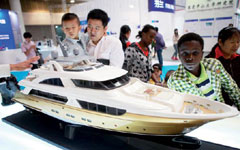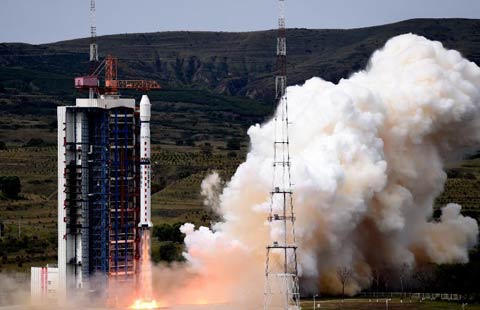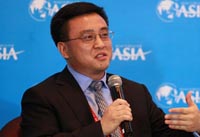Spirit of success moves nation's entrepreneurs
By Zheng Yangpeng (China Daily) Updated: 2014-05-20 07:01"The mobile Internet industry in China is so developed that I believe it could soon export some innovation to the rest of the world," Gong said. "So far, Chinese entrepreneurs have excelled at application-oriented fields, such as the mobile Internet and electric cars. But if you look at fields that are more closely related to basic science, such as medicine, there is a huge gap with the US."
Behind China's vibrant technology, media and telecommunication sector, Gong said, are tens of thousands of private equity and venture capital firms, as well as millions of entrepreneurs who aspire to be tomorrow's Elon Musk (chief executive officer of Tesla).
 |
|
 |
"In China's TMT sector, the problem is not lack of money but a lack of creative ideas. China's social enterprises face a much tougher environment," he said. "In Silicon Valley, nearly a quarter of the venture capital funds have gone into social enterprises, but here the share is minor.
"If you also consider charitable foundations and crowdfunding in the US, which support social enterprises, the gap is huge."
Another potential risk of VCs' focus on TMT in China is that too many entrepreneurs might be tempted to join this field despite lacking the passion and resources, Gong said.
"So for entrepreneurs, it is important to care about what VCs care about, but not to follow them blindly. You can't dance to the VC firms' beat," he added.
But Gong is no pessimist when it comes to China's entrepreneurship. He said his interaction with domestic entrepreneurs convinced him that the nation's entrepreneurial spirit is high.
Cultural factors are also on China's side, he said, because "no fear of making mistakes", a vital trait for entrepreneurs, is much more prevalent here than in other East Asian nations.
"You look at any entrepreneurship index, and you find China is among the highest in the world. This is a country full of passion for entrepreneurship. I see no sign that the fever is waning. Quite the opposite," he said.
The only factor that may hinder this innovative impulse, according to Gong, is government regulation in many industries. China's most dynamic sectors are also those least regulated, and there's a good reason for that.
- Standard Chartered offshore RMB index rises slightly in July
- Shanghai-HK stock link to speed up capital market reforms: Barclays
- Relaxing restrictions on foreign investments
- Fujian on course to help create the new maritime Silk Road
- Foreign investors set sights on new targets
- UK looks to diversify in China
- Malaysia keen to expand trade ties
- HK still top choice for mainland firms
















